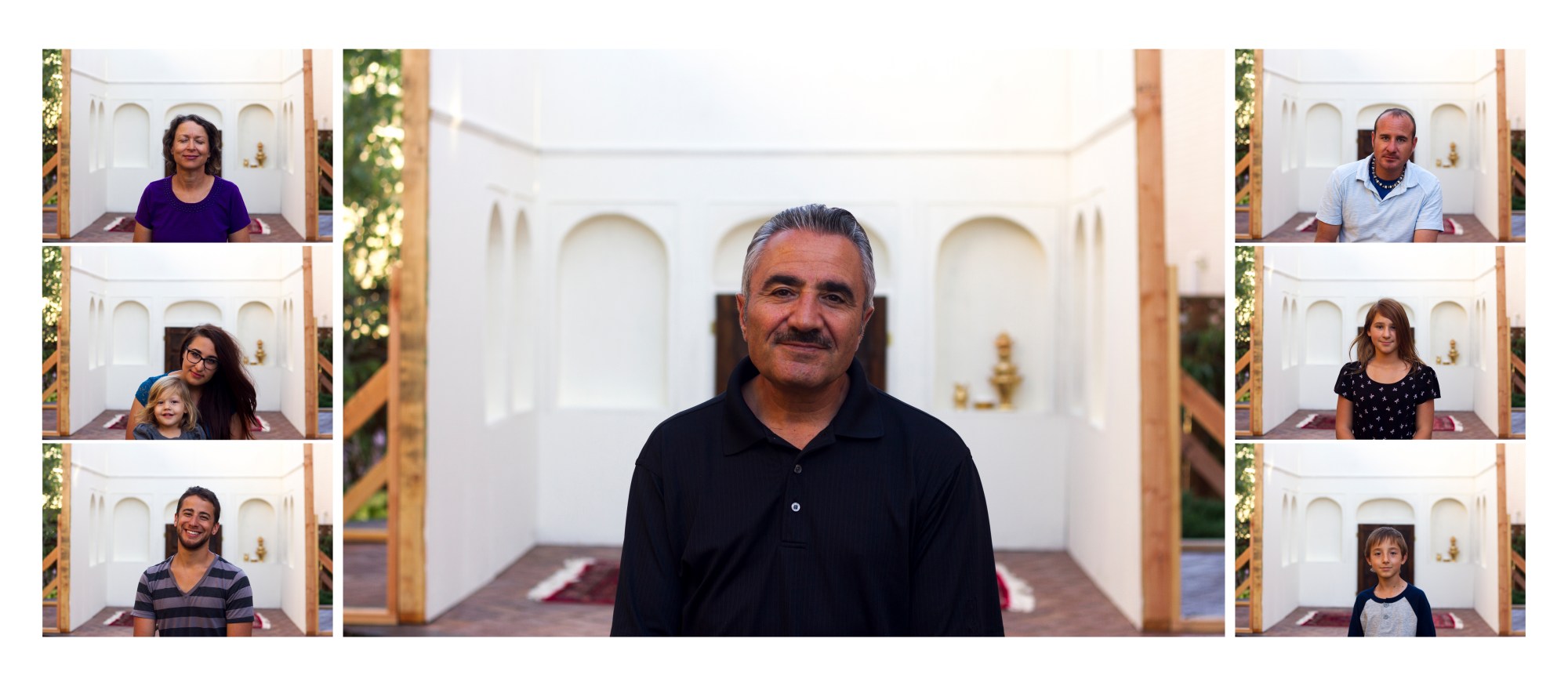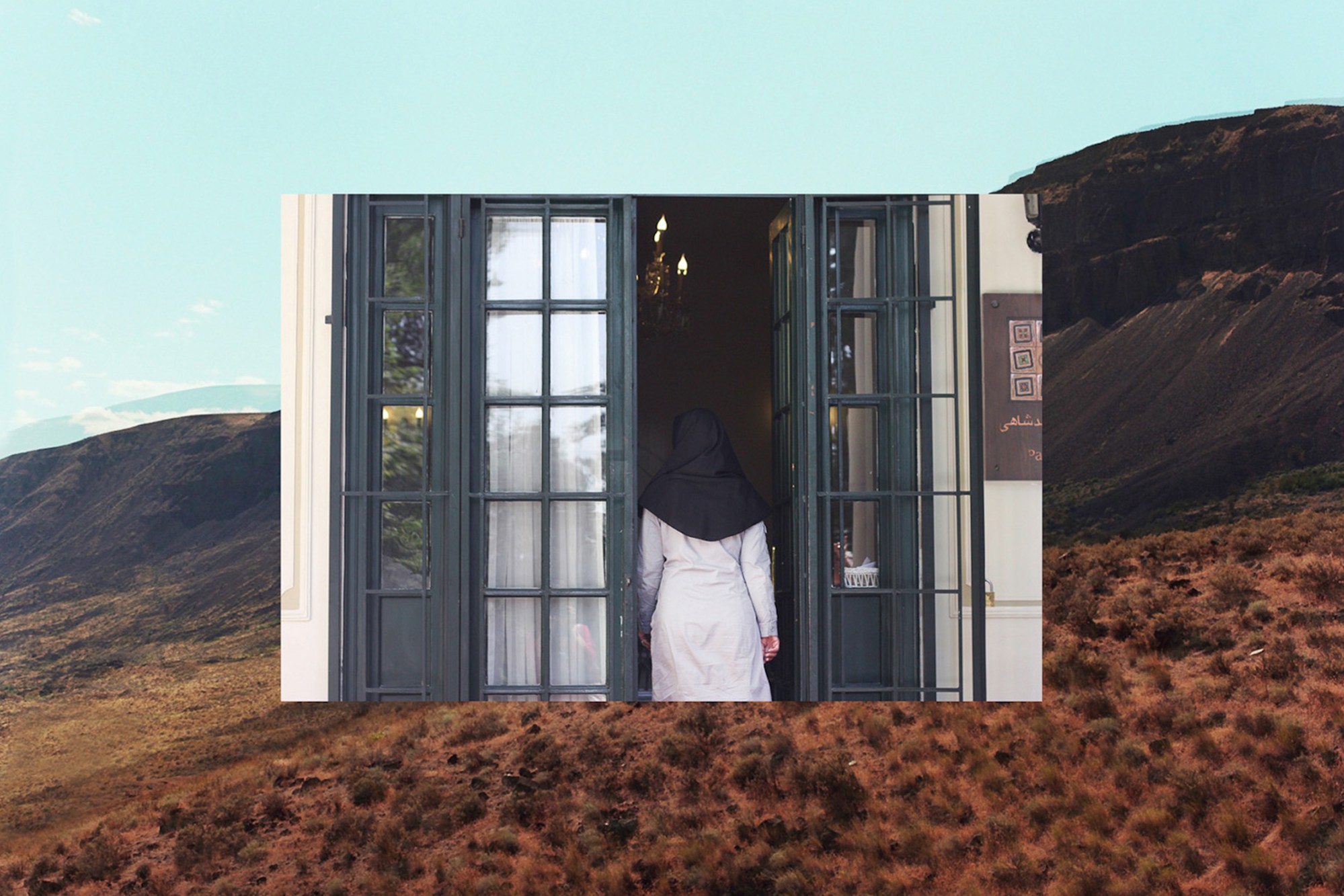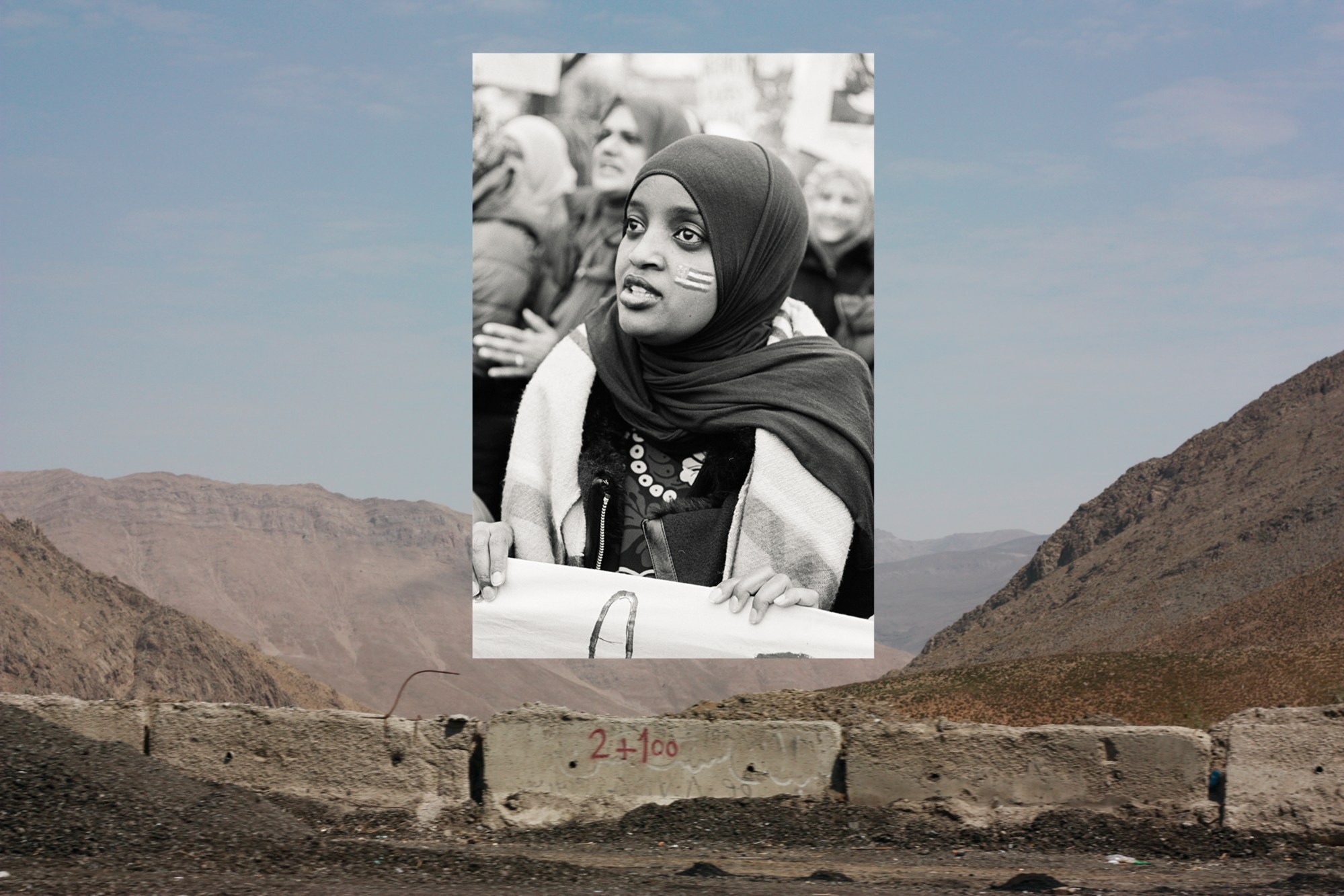With the future of DACA uncertain and arrests of undocumented immigrants increasing, there’s no doubt that the rights of immigrant communities and religious minorities are being reversed by the Trump administration.
But it was the first Executive Order in January 2017, or the Muslim Ban — which denied entry to the U.S. from seven Muslim-majority countries — that sparked global furore. A year ago this weekend, protesters descended on JFK and several others airports across the U.S while tens of thousands hit the streets in London. In response to the anniversary, co-curators Kiana Pirouz, a content director, and Mahya Soltani, a graphic designer, have organized the three-day exhibition Before We Were Banned.
Iraq was later exempted from January’s order. But with each of the seven countries on the original list — including Syria, Iran, Yemen, Sudan, Somalia, and Yemen — effectively reduced to “banned” status, it’s vital to celebrate them as individual nations. Opening to the public today at Brooklyn’s Helix Gallery, Before We Were Banned comprises eleven emerging and established U.S.-based artists who identify with one or more of the seven countries on the original list. They will showcase works spanning multimedia installations, video, photography, collage, and printmaking.
The exhibition couldn’t have come at more poignant time. The Supreme Court ruled last December that the most recent travel ban on six Muslim-majority countries can go into effect while some families are still in limbo. And this weekend will be particularly sentimental for the co-curators, not least because this time last year, they spent it at JFK, helping people gain entry to the U.S.
As Before We Were Banned opens to the public, i-D caught up with Kiana and Mahya to find out more about how the exhibition came to be, why immigrant communities need spaces to heal, and what they hope to achieve.
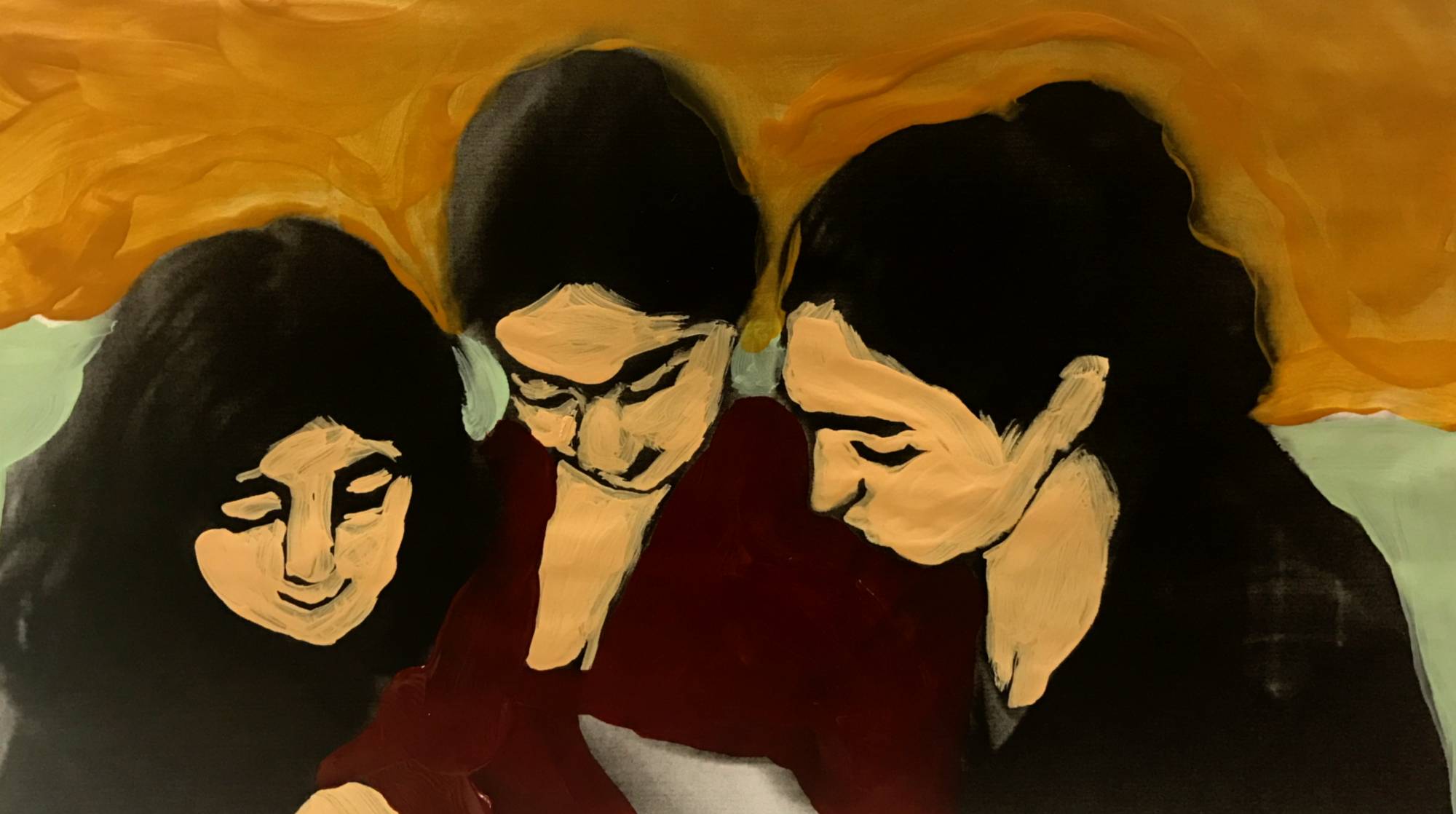
How did the idea for Before We Were Banned first come about?
It’s an act of processing the hatred used by the powerful as well as a defiant act of needing to show the other side. To us, the ban itself was just another [example] of anti-immigrant and anti-Muslim rhetoric by the US government. This is why we named it Before We Were Banned – the name indicates that persistent fear and pain existed years before Trump ever took office.
We wanted to take back the narrative, away from how the media and government use visual cues to stereotype some of these regions — starving children, war, anti-America chants, women in hijab — to perpetuate a narrative that is so narrow. We want to show the other side. We also felt it would be a disservice to the cause if we didn’t nod to the fact that “immigrant”, “Muslim,” and “Middle Eastern” are a forced identity put on artists from these places. We asked the artists to respond to that.

Tell me a bit more about why and how you chose the artists you did?
We chose to do an open call because this is really about the community. We were really thrilled by the responses. The works were selected to show a diverse array of individual voices and stories.
Why do think Before We Were Banned is so important?
Our culture encourages us to otherize. However, it’s less about the truth of the countries themselves and more about reminding people that stories are about the individual and that’s where we can cut across differences and find common ground. Each person has a unique story and has been affected by this ban in a different way. We have artists in the show who are raised or born in the US and felt the sting of this ban. We also have artists who have recently become refugees in the U.S. and fled their countries in the past few years because of war. Our dream is that people visiting the show will associate individual stories with the Ban vs. the names of the countries. So it’s important because if we keep generalizing and otherizing, we will spiral deeper into isolationism and fear, which are the favoured tools of authoritarian regimes.
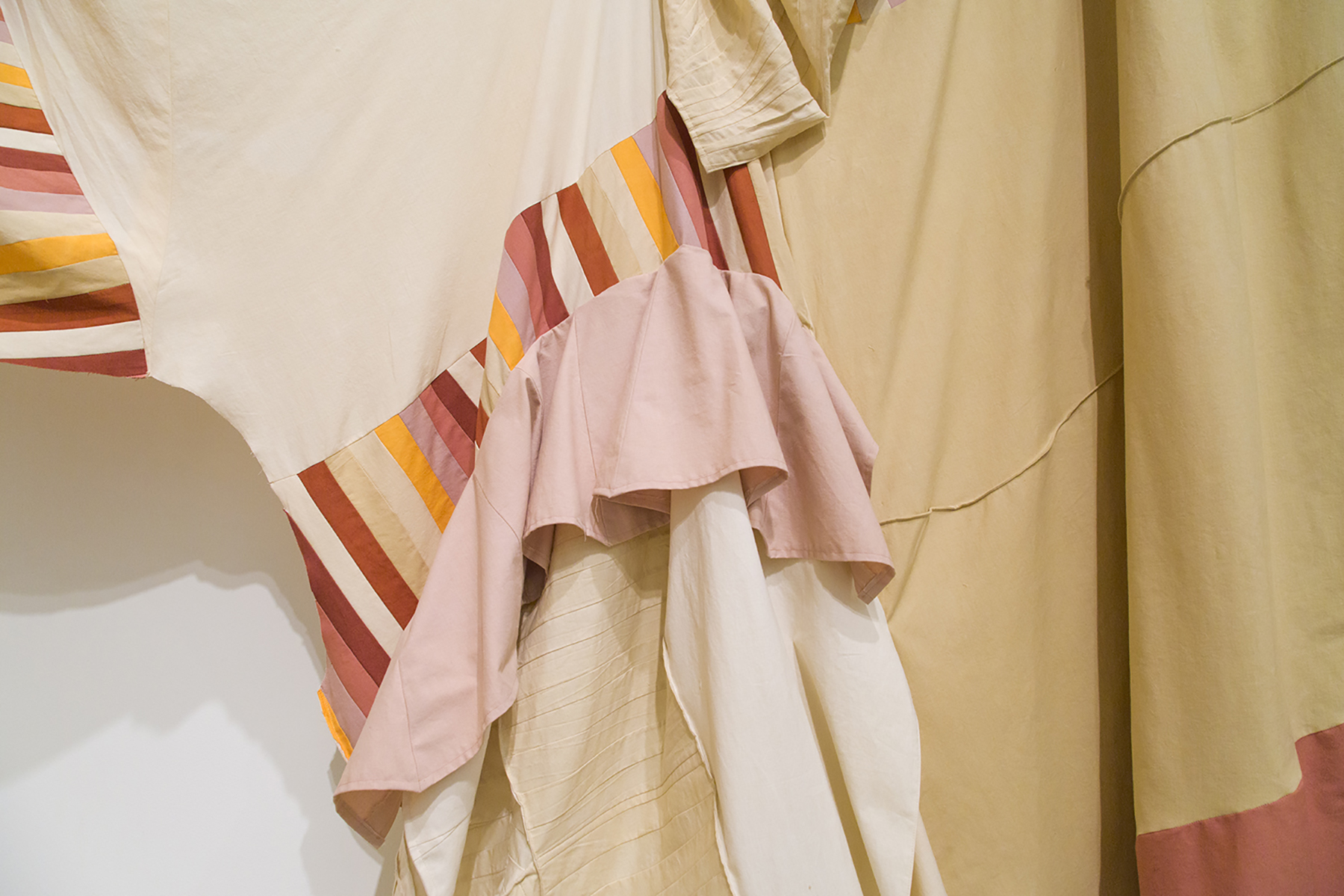
To what extent do you think the artists reveal honest representations of the countries affected by the ban?
As individual humans with a story. How often do we see a wedding or a graduation or simple daily life represented in these countries (and many more)? The spectrum of daily life, of daily emotion, layered over oppressive regimes and hateful rhetoric, is represented in Before We Were Banned.
What’s something you wish people would stop assuming about the countries that Trump banned?
Two things: we hope the show serves as a celebration of cultures. It’s a very trying time for millions of immigrants right now and we don’t want to forget that our cultures are beautiful and worthy of celebration. We also want people to associate personal, individual stories with the ban vs the stereotypes pushed out by the Western media and governments.
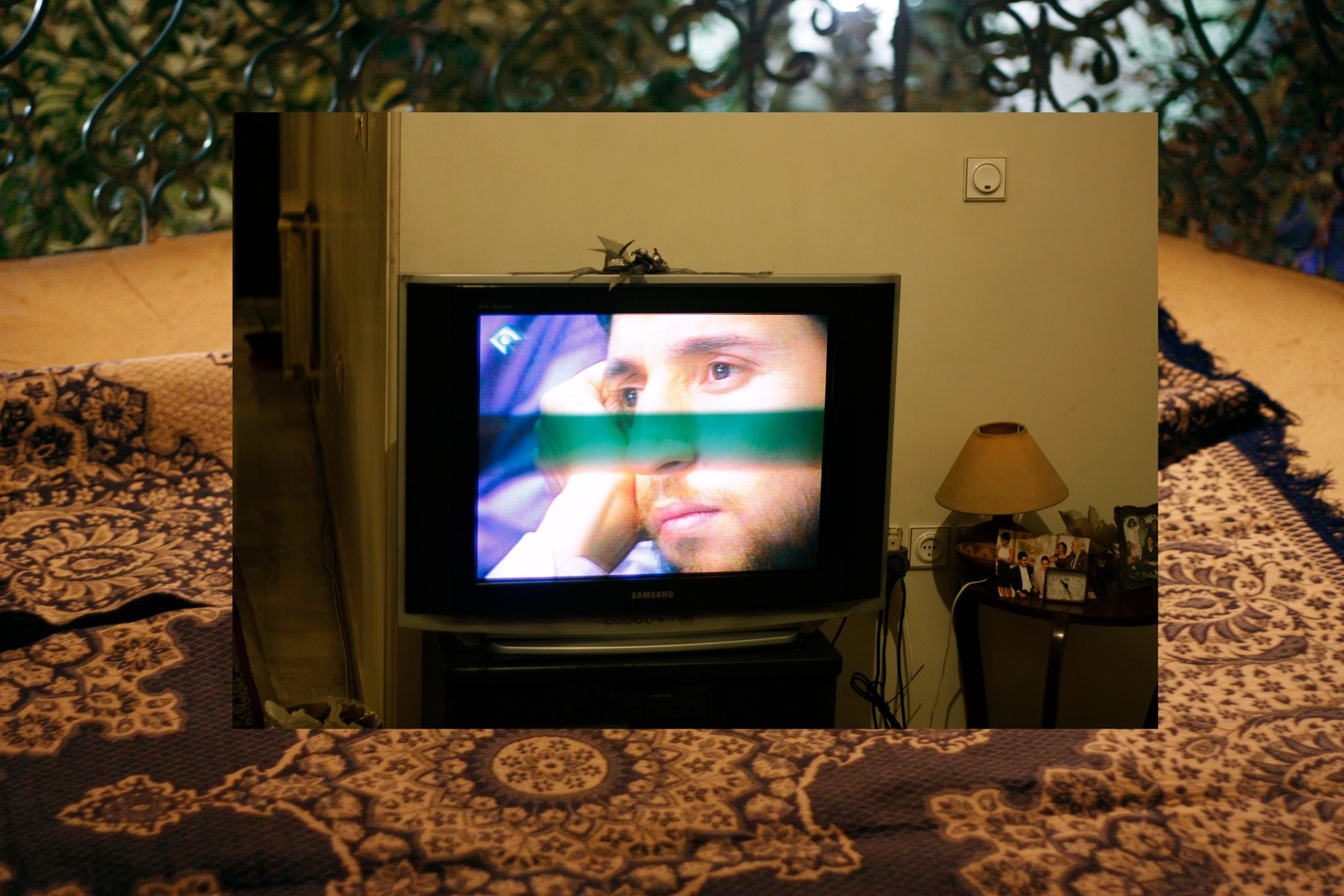
Do you think now is an exciting time for kids of immigrants to reclaim their parents’ culture, history, and heritage?
It is. The internet has allowed us to be very connected, despite borders. The feeling of community is palpable and necessary now more than ever. It feels much more topical in 2018 to reclaim immigrant history and heritage because it’s at stake. The desire to maintain narratives is also at stake. Young people are realizing that we can be the gatekeepers to their ancestral stories. That we don’t need to just rely on the media to tell us about ourselves.
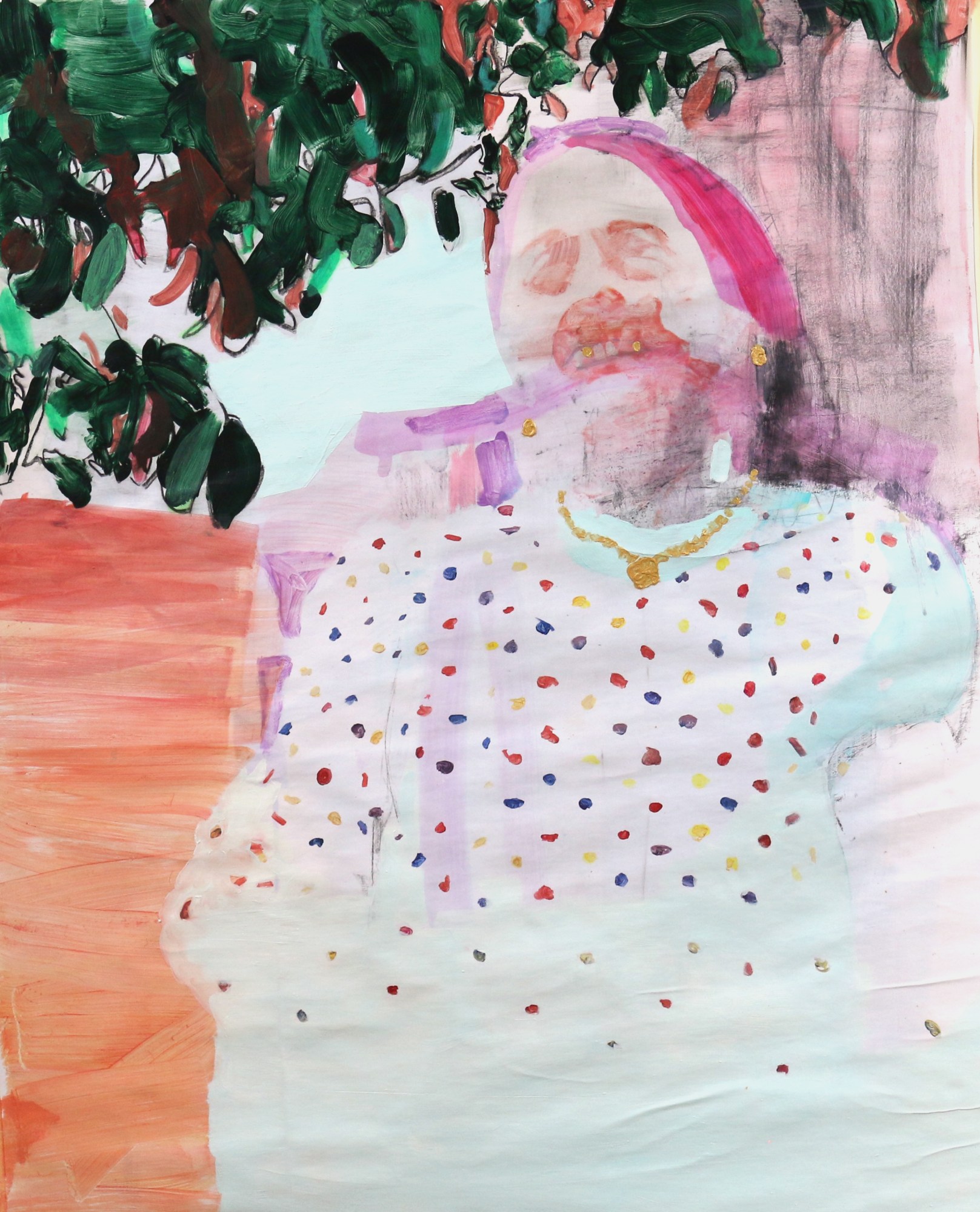
What’s the response been like to your exhibition so far?
It’s been overwhelmingly positive and really supportive. As organizers, we are not part of the arts world and did this out of love of our culture and peoples.
What do you hope to achieve from the exhibition?
Giving a voice to artists and the chance to help heal the community feels more than enough.
The show only runs for two nights. Could you tell me why that is?
The show is on the anniversary of Trump’s Executive Order which signed Muslim Ban 1.0. Last year, we spent this same weekend at JFK helping people gain entrance to the country. This weekend, we want to provide respite for the heartbreaking memories and feed souls to keep resisting.
